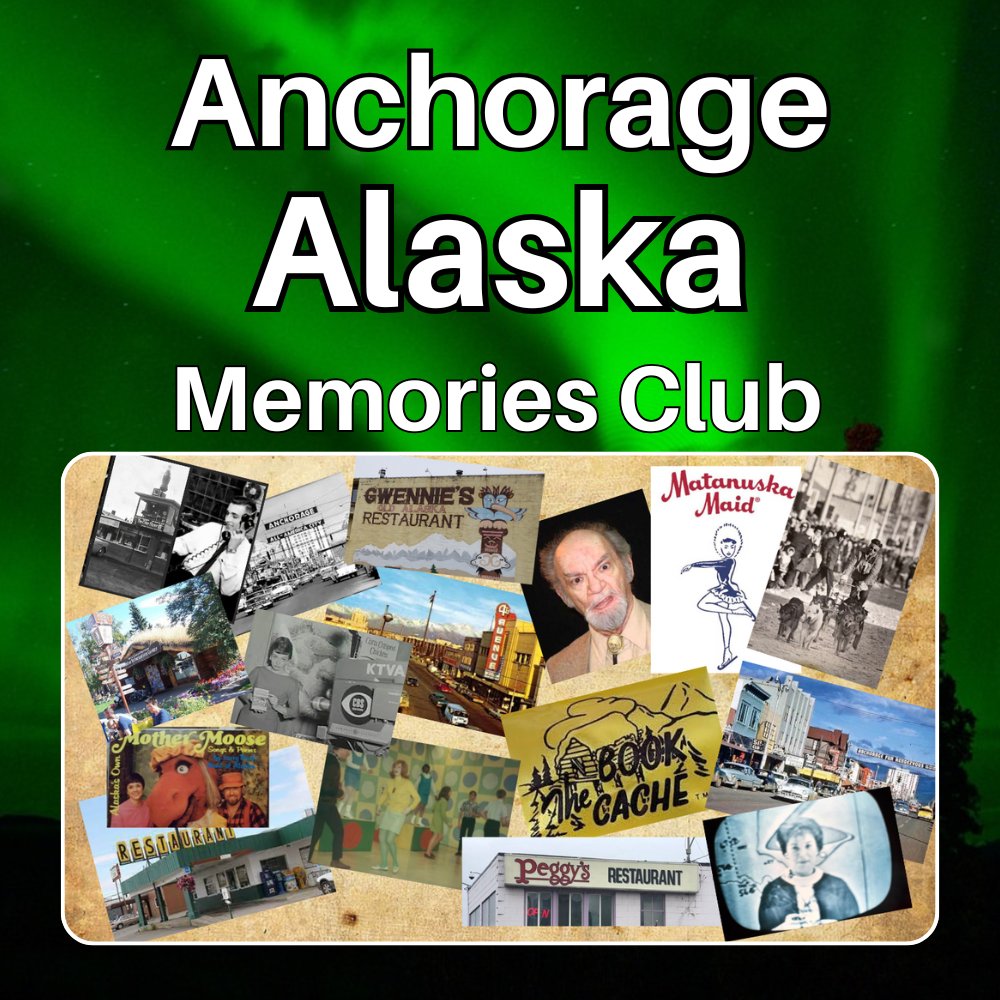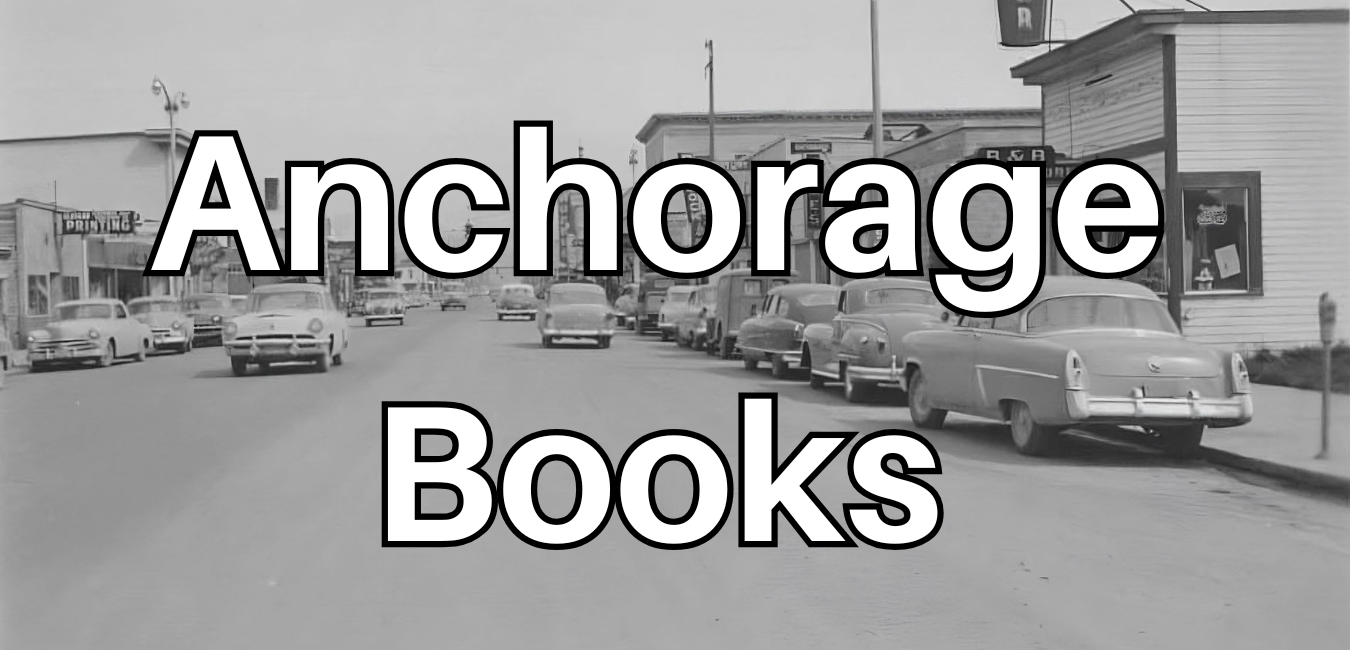This is the Fascinating History of Anchorage Alaska
Did you know the History of Anchorage Alaska began with a tent city?
BONUS
And while they did not live on Ship Creek Flats, the area that became Anchorage, the Dena’ina, a tribe of Athabascan Indians, had lived in the surrounding areas for over 1000 years.
On May 25, 1778, Captain James Cook, an English explorer, first entered the area aboard the HMS Resolution by what would become known as Cook Inlet.
Cook's sailing master was William Bligh, and the two did not agree about the inlet. Bligh insisted it was a river. The ship explored the inlet for nearly two weeks.
Turnagain Arm is so named because the HMS Resolution kept having to “turn again” while sailing the inlet.
Spring 1915,
The Beginning
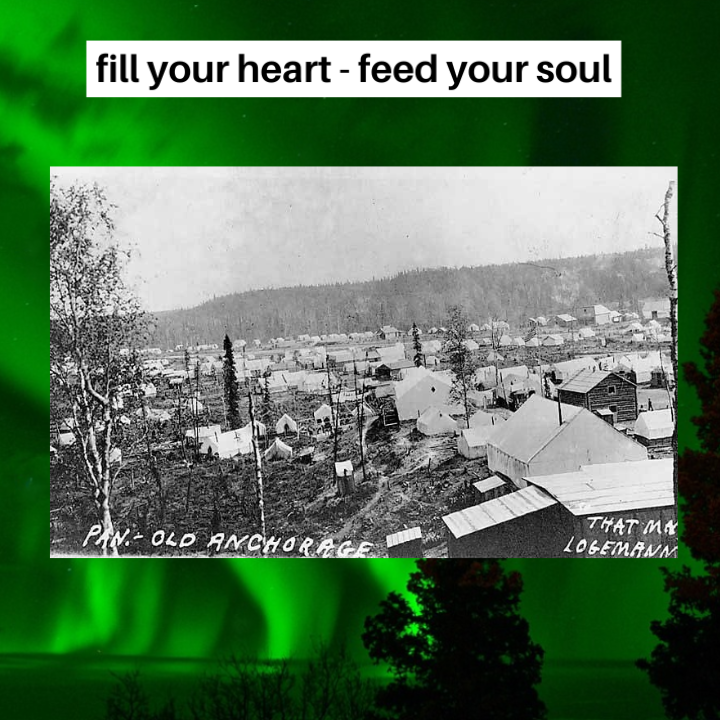
The history of Anchorage Alaska begins here.
Unlike many towns in Alaska, Anchorage didn't get its start because someone discovered gold. Although they did find gold along Turnagain Arm (Cook Inlet), the waters off Anchorage, in 1888.
It wasn't gold - it was the railroad.
Anchorage got its start in 1915 as the headquarters and a construction camp for the Alaska Railroad.
You see, in 1915, the U.S. Congress authorized construction of the only federally owned railroad in America's history.
Following that, more than 2000 people from all over the world flocked to the mouth of Ship Creek, seeking employment. Some were merchants who would set up shops, and some came to provide other services.
So, a kind of “tent city” sprang up in the wilderness along Ship Creek and later around what became known as Government Hill, the town's first neighborhood.
It was the beginning of Anchorage and what is now the largest city in Alaska.
BONUS
1916 Movie Film
of Anchorage, Alaska

The video above includes footage of the Alaska Labor Union log cabin, a laundry in a tent, and 4th of July festivities in the new town of Anchorage.
April 1915
Naming the Town
The History of Anchorage Alaska
As the population grew, the new town needed a name.
Those living in the tents had already begun calling it by names like “Ship Creek”.
But the town required an official name, so they had everyone vote for their favorite.
Possible names included:
- Alaska City
- Gateway
- Ship Creek
- Lane (after the U.S. Secretary of Interior from 1913 to 1920, Franklin K. Lane)
- Matanuska
- Winalaska
- Homestead
- Terminal
- Gateway
***The winner was Alaska City, with Lane a close second.
Then shortly after the vote, the United States Post Office had another idea. They decided the name for the town would be “Anchorage.”
April 1915
She Drove
the First
Railroad Spike
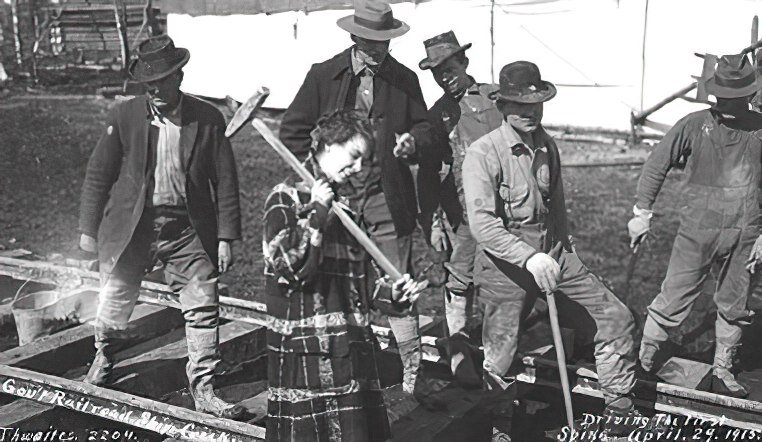
In the picture above is a special ceremony.
A lady named Martha “Babe” White (pictured above) was given the honor of driving the first spike in the Alaska Railroad at Ship Creek. Martha was born in Tyonek in the Cook Inlet area on either July 21, 1894, or July 22, 1895.
She was also the first non-native born in or around Cook Inlet.
1915
Building Anchorage

In the picture above is the first house in Anchorage, Alaska.
Oscar Anderson claimed to be the 18th person to set foot on Ship Creek Flats.
He built the first home in Anchorage in an area now known as Elderberry Park near downtown. Anderson lived in the house until his passing in 1974.
Today, the Oscar Anderson House is open to the public.
BONUS
History of
Anchorage Alaska
June 1915
All the News
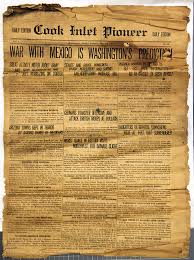
In the photo above is an edition of Anchorage's first newspaper.
The history of Anchorage Alaska was coming to life, and a town had just begun.
So to capture all the latest happenings, the Cook Inlet Pioneer began publishing a weekly newspaper. And, as with all the other businesses on Ship Creek at the time, the newspaper's office was in a modest tent.
Then on May 29, 1917, the Cook Inlet Pioneer became the Anchorage Daily Times, a daily publication.
November 1915
Going to School
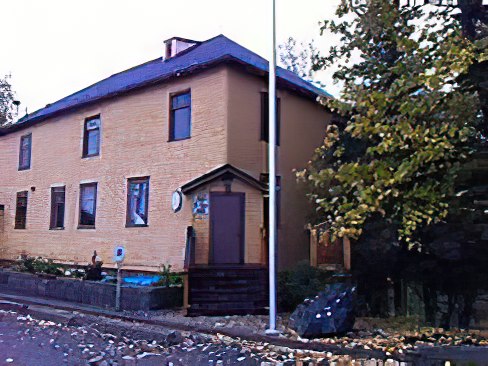
Anchorage's first school was made of leftover material from the Alaska Railroad.
Ora Dee Clark was hired to be the first school superintendent and a teacher, along with three other teachers.
Things in the first school building were crude.
They used wood-burning stoves for heat, and because there was no electricity, they used oil lamps for light in the dark of winter. There was no running water, and the students and teachers had to use an outhouse.
There were about 100 students in the first school.
BONUS
1915
One of the First
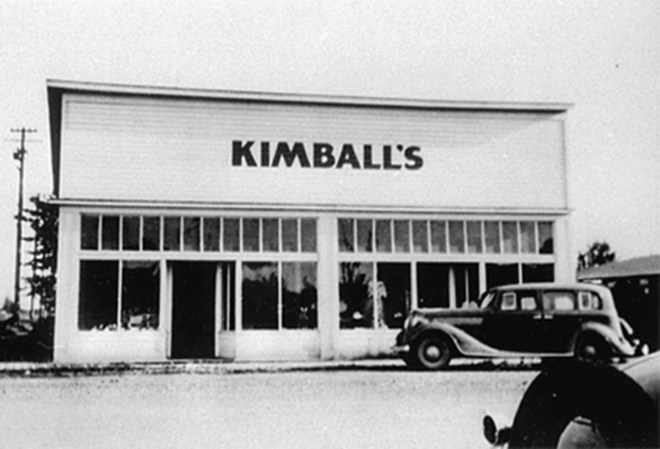
Irving L. Kimball and his wife, Della, purchased one of the first lots auctioned off in the new town that would become Anchorage, Alaska.
It was located at 500 West 5th Avenue. At that location they built a store with an upstairs apartment for them and their family.
Opening in November 1915, the store sold a mixture of general merchandise, hardware, and groceries.
After Irving passed away, his wife, Della, operated the store but stopped selling groceries.
Then, in 1958, following the death of Della, Kimball's daughter, Decema Kimball Andresen Slawson, kept the store in operation but also began selling paint. Decema passed away in 2002.
The store was in operation from 1915 to 2002, making Kimball's Dry Goods the oldest continuously operating business in Anchorage during that time.
Kimball's Dry Goods was in operation for 87 years, and the building still sits at its original location.
History of
Anchorage Alaska
July 1916
Anchorage's First
Movie Theatre
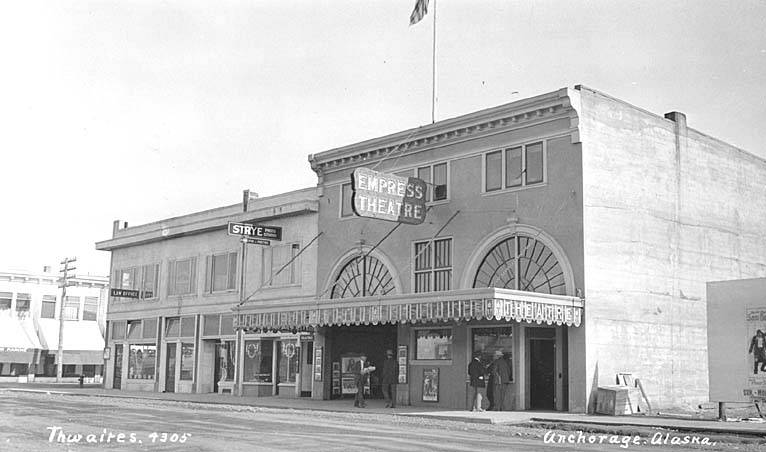
The Empress Theatre was located on 4th Avenue.
Built by Austin Eugene “Cap” Lathrop, the Empress Theatre first opened on July 1, 1916.
And the First Movie was…
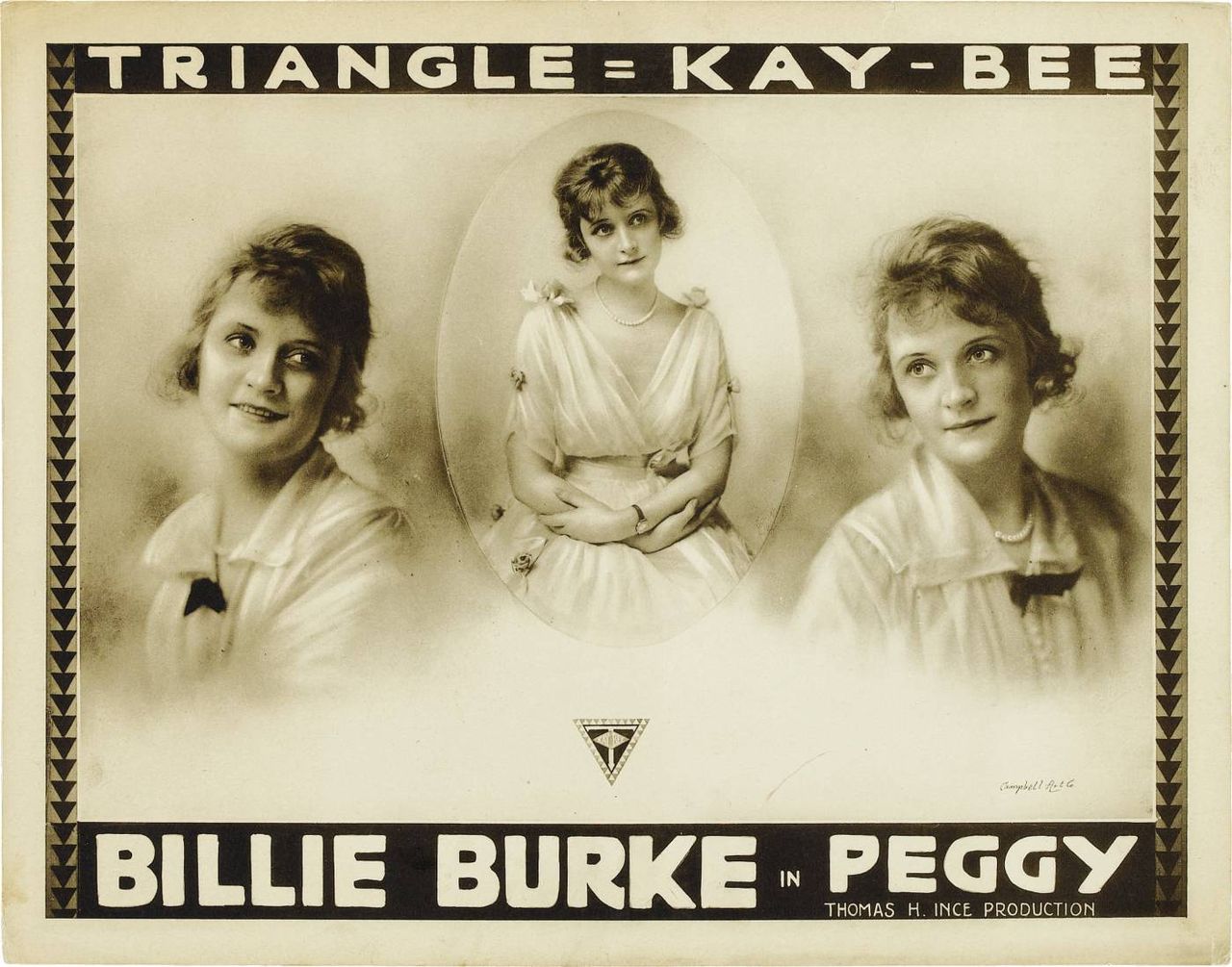
The silent movie “Peggy,” starring Billie Burke, was the very first movie shown to the tent city population.
Because folks in the new town were starved for entertainment, movies shown at the theater played to a packed auditorium.
While the movie house opened without one, a theatre organ was later added, so local audiences also enjoyed music while they watched movies.
The Empress showed movies well into the 1950s.
Parts of the theatre organ were later used in the Uncle's Pizza Parlor organ in Anchorage.
BONUS
1917
A Firebreak Becomes
a Golf Course
and an Airstrip
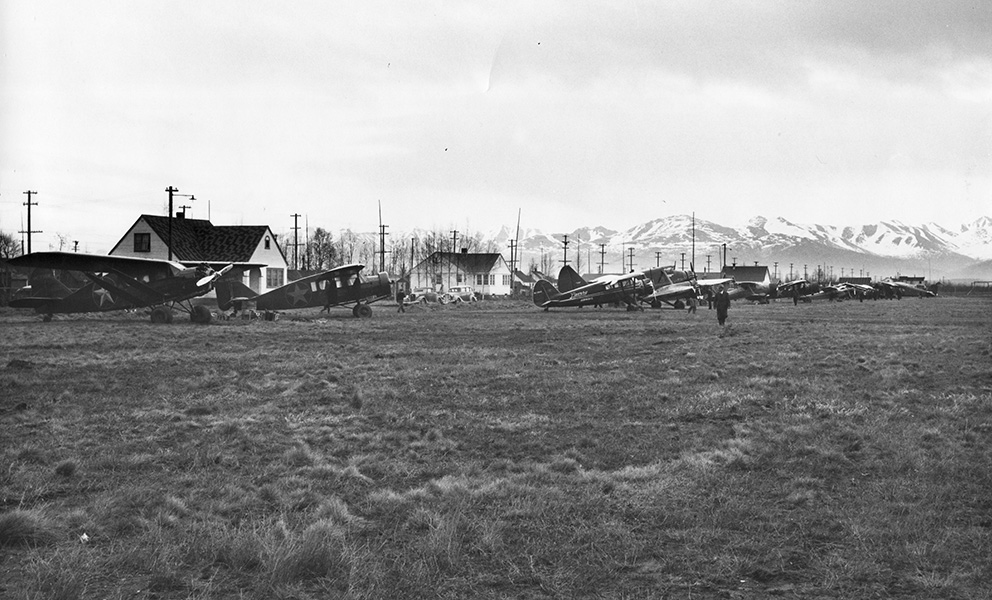
The picture above shows the land before it became a park.
More wooden buildings appeared on the shores of Ship Creek, and business buildings were popping up along 4th and 5th avenues.
In 1917 it was decided that Anchorage needed the safety and protection of a firebreak.
So they cleared 11 blocks between 9th and 10th Avenues and A and P streets.
Later in 1923, a golf course was created on the clearing, followed by a landing strip for bush pilots.
In 1954, what originally began as a firebreak became the Park Strip, the largest park in the city.
It became known as Delaney Park in 1970, named after Anchorage Mayor James Delaney.
September 1919
Another First
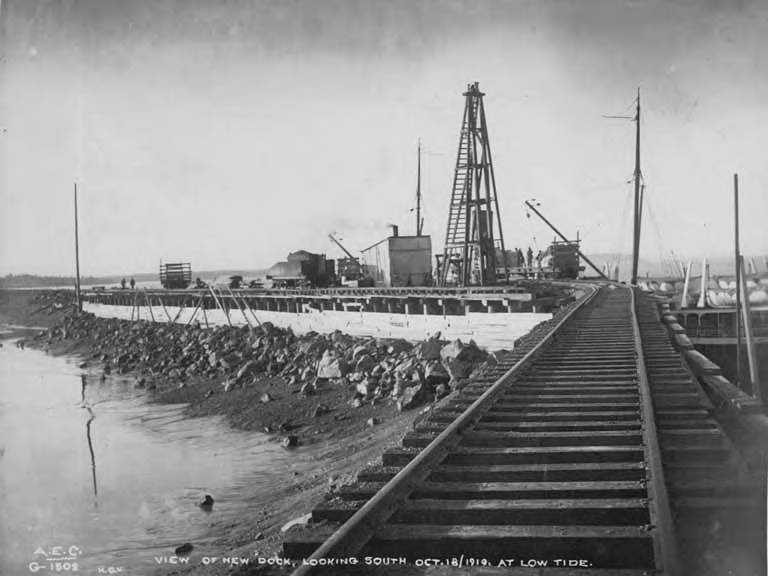
The Anchorage dock at low tide in 1919.
In 1919, the ocean-going freighter, the Anyox, docked in Anchorage.
The ship's cargo included two thousand tons of steel rails and other equipment for the Alaska Engineering Commission (AEC) for the railroad.
May 24, 1922
the First Airplane
in Anchorage
A pilot named Charles Hammontree was the first pilot to fly over Anchorage.
He took off in a hydroplane from near the old docks on Ship Creek Flats and conducted a test flight over the town at 4:00am.
Later, following his successful flight, some residents flew with Hammontree as passengers.
May 1924
A First for
Anchorage and Alaska
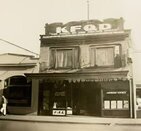
How well do you know the history of Anchorage Alaska?
Did you know the first radio station in Anchorage was KFQD?
But it wasn't just the first in Anchorage; it was the first in Alaska. At one time, the studios of KFQD were located on 4th Avenue.
1929
Aviation Field Became
Merrill Field
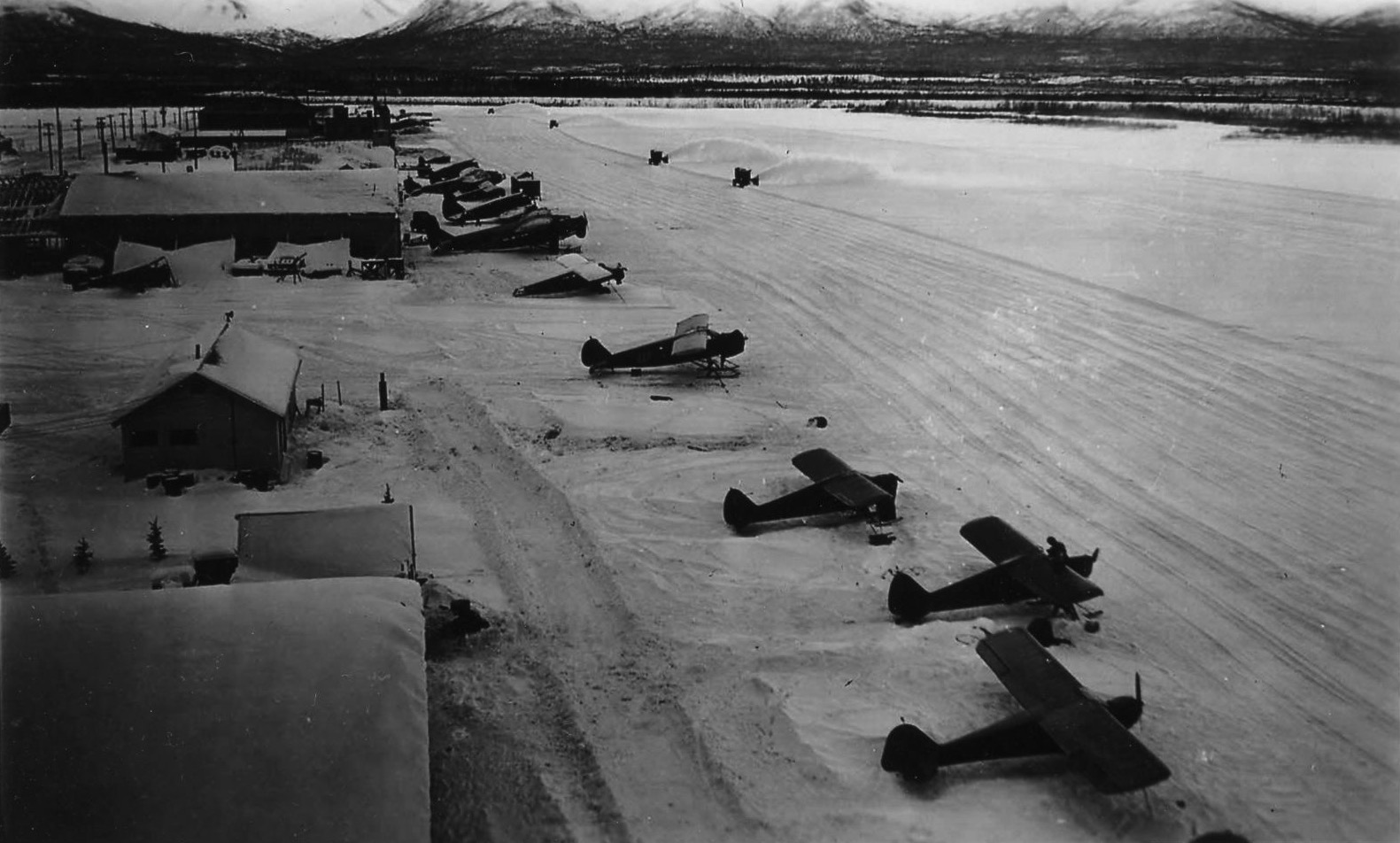
Pictured above is the first airport in Anchorage, Alaska.
Before it became Merrill Field, the airstrip outside Anchorage had another name… Aviation Field.
After Aviation Field first opened in 1929, Anchorage quickly became the hub for air service in Alaska.
BONUS
Later in 1930, Aviation Field became known as Merrill Field, named after Alaskan aviation pioneer Russel Merrill.
DOUBLE BONUS
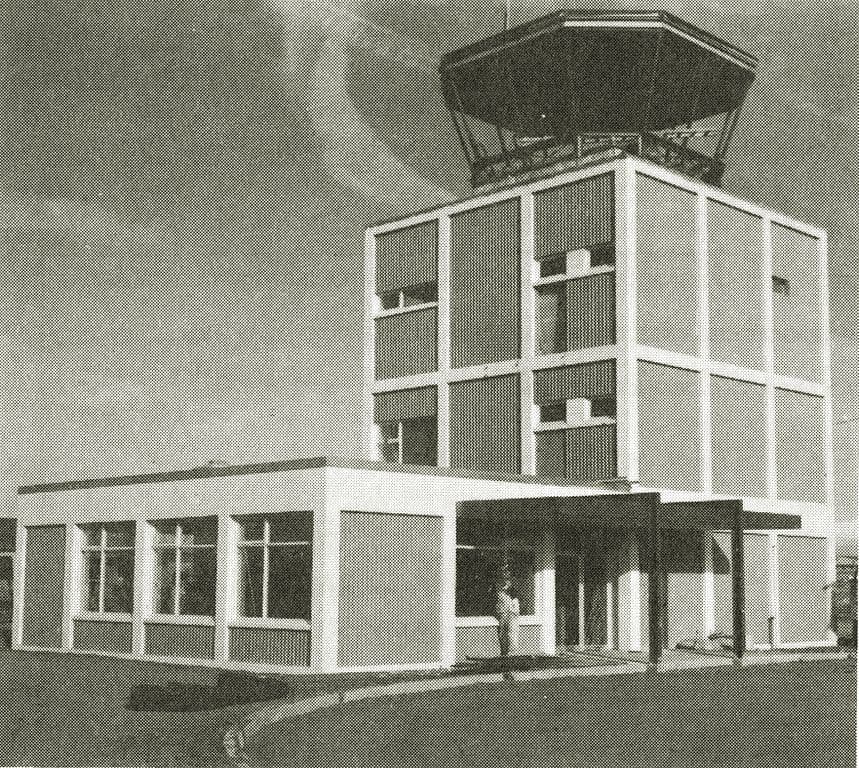
In the photo above is the Merrill Field tower.
During the 1930s, Merrill Field had so much air traffic that it became the most active civilian airport in the entire U.S.
Anchorage International Airport opened in 1951.
February 1935
the Fur Rendezvous Begins
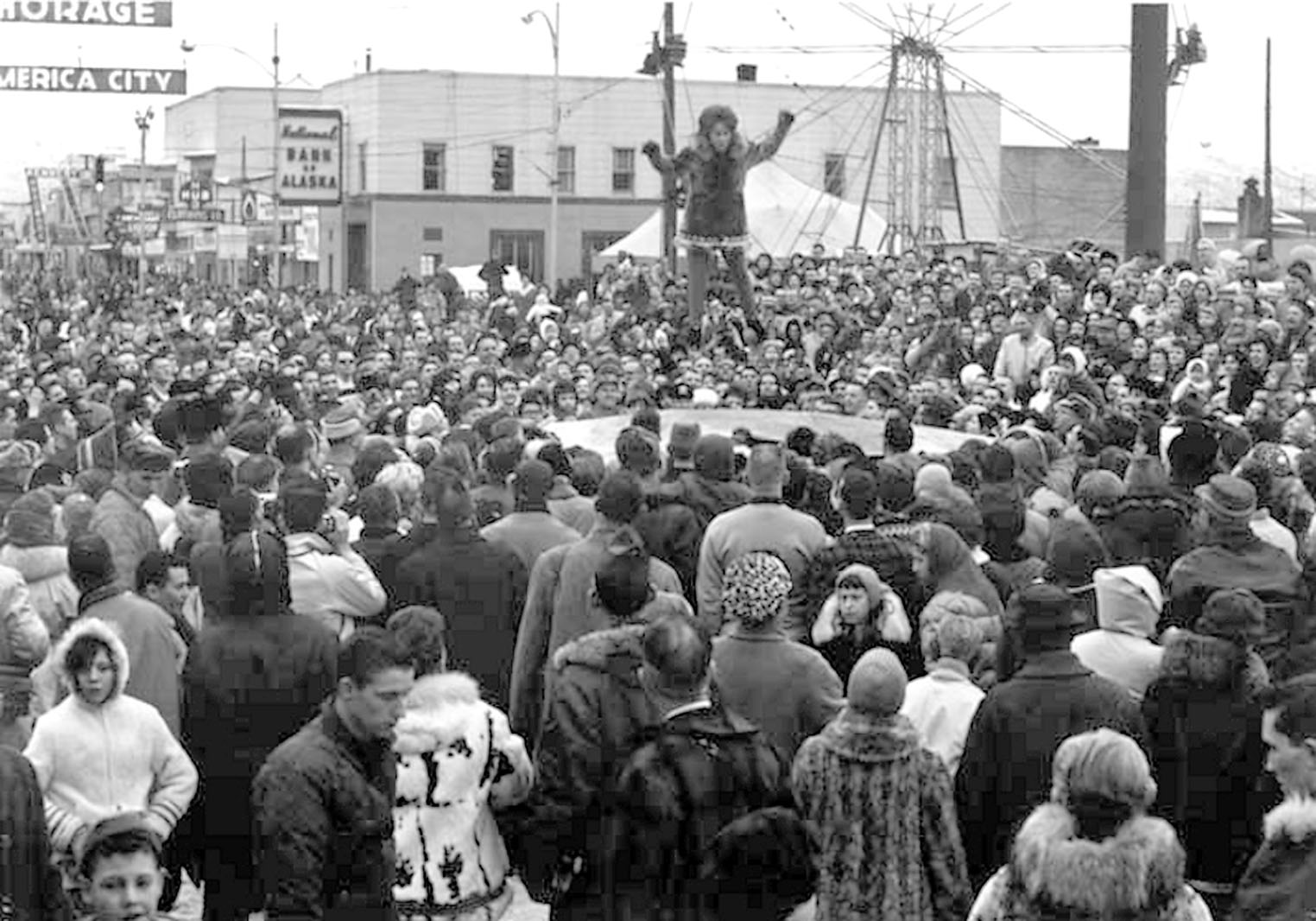
Vern Johnson gets the credit for being the “Father of the Fur Rendezvous”.
In 1935, Johnson organized the “Winter Sports Festival”.
The first event featured hockey, basketball, skiing, boxing, and, as if to forecast the future of the event, a children's sled dog race down 4th Avenue.
Just two years later, the name of the event became the “Winter Sports Tournament and Fur Rendezvous”.
In 1946, the event featured the first Fur Rendezvous sled dog race. The winner was Earl Norris.
Today, the Fur Rendezvous is the largest winter carnival in the world.
BONUS
May 1947
a Great Competition
Begins
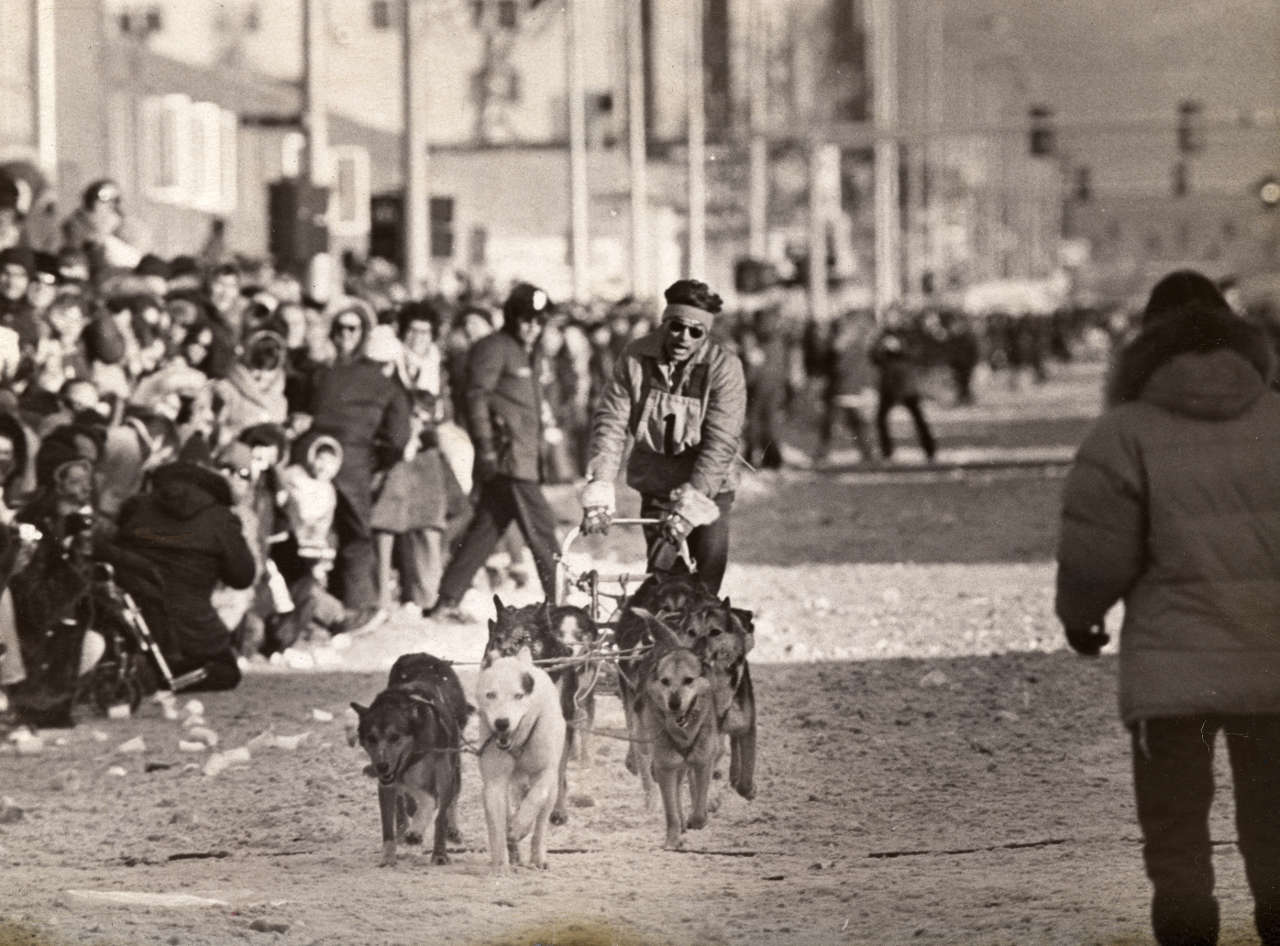
Pictured above is George Attla, one of the most famous Alaskan mushers.
The competition between musher George Attla and a musher named Dr. Roland Lombard of Massachusetts became a legend.
There was even a movie made about George Attla's life titled “Spirit of the Wind.”
BONUS
In 1949, the Eskimo Blanket Toss became part of the Fur Rondy.
Alaska Natives from Nome and Diomede Islands came to Anchorage to demonstrate the blanket toss.
BONUS
A tarp of seal or walrus hide was used to toss a member of the village, who had good eyesight, up into the air so they could spot wild game for food.
November 1936
A Dedication
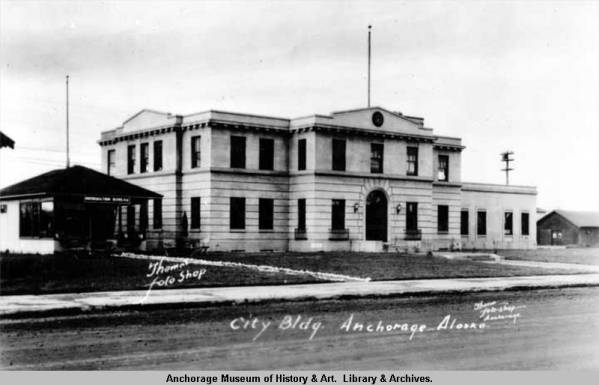
Anchorage's City Hall, was dedicated at 524 West 4th Avenue, adding an important event to the history of Anchorage Alaska.
January 1939
the First High school
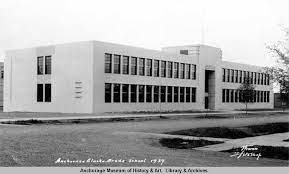
Anchorage High School (the town's first) opened its doors in 1939 at 6th and F Streets.
The building also housed an elementary school and an auditorium, which was used for both school and civic events.
1939 to 1941
the Federal Building
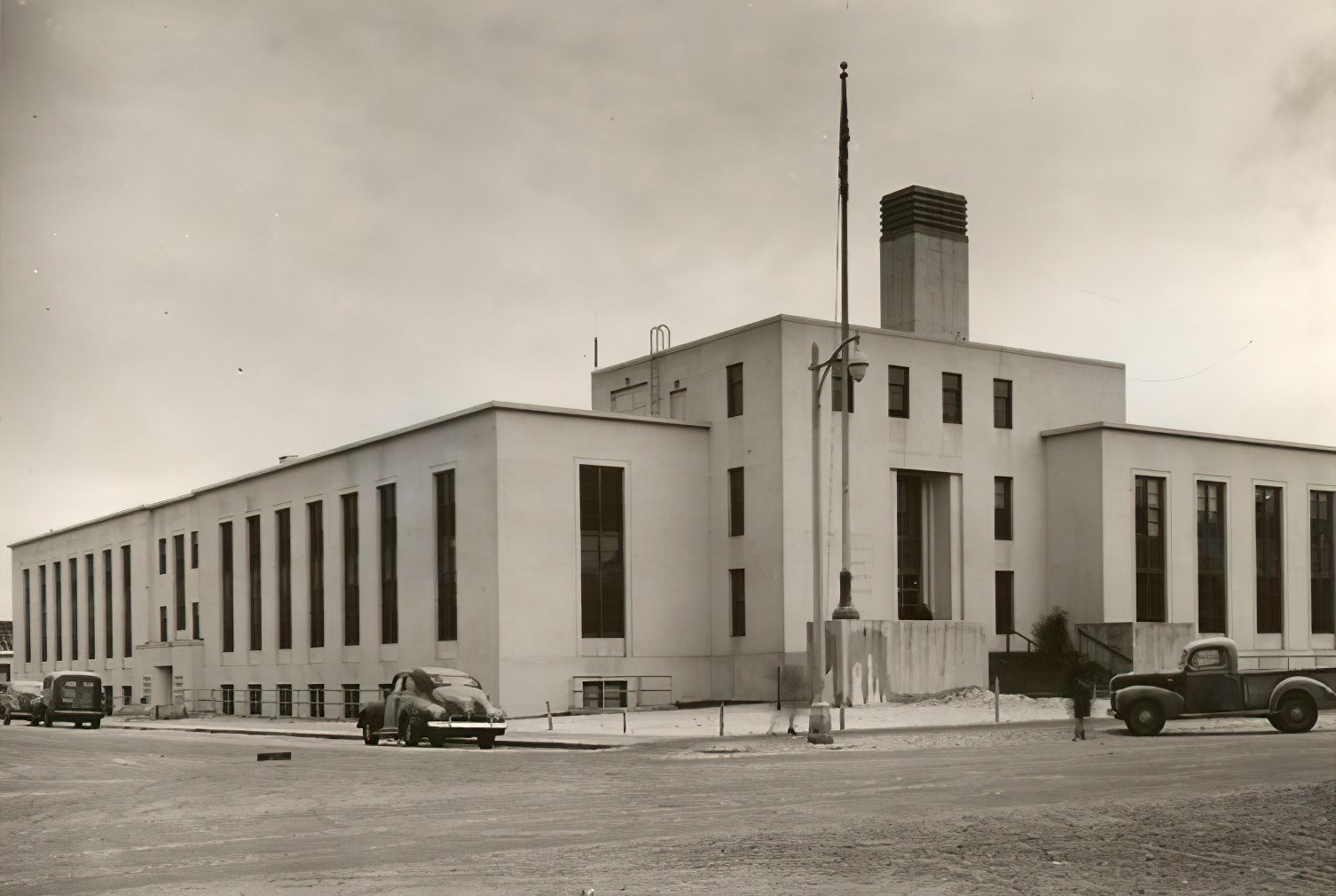
The Federal Building was built one section at a time.
Located across the street from what used to be the 4th Avenue Theater.
Construction took place from 1939 to 1941.
BONUS
June 1940
the Military Arrive
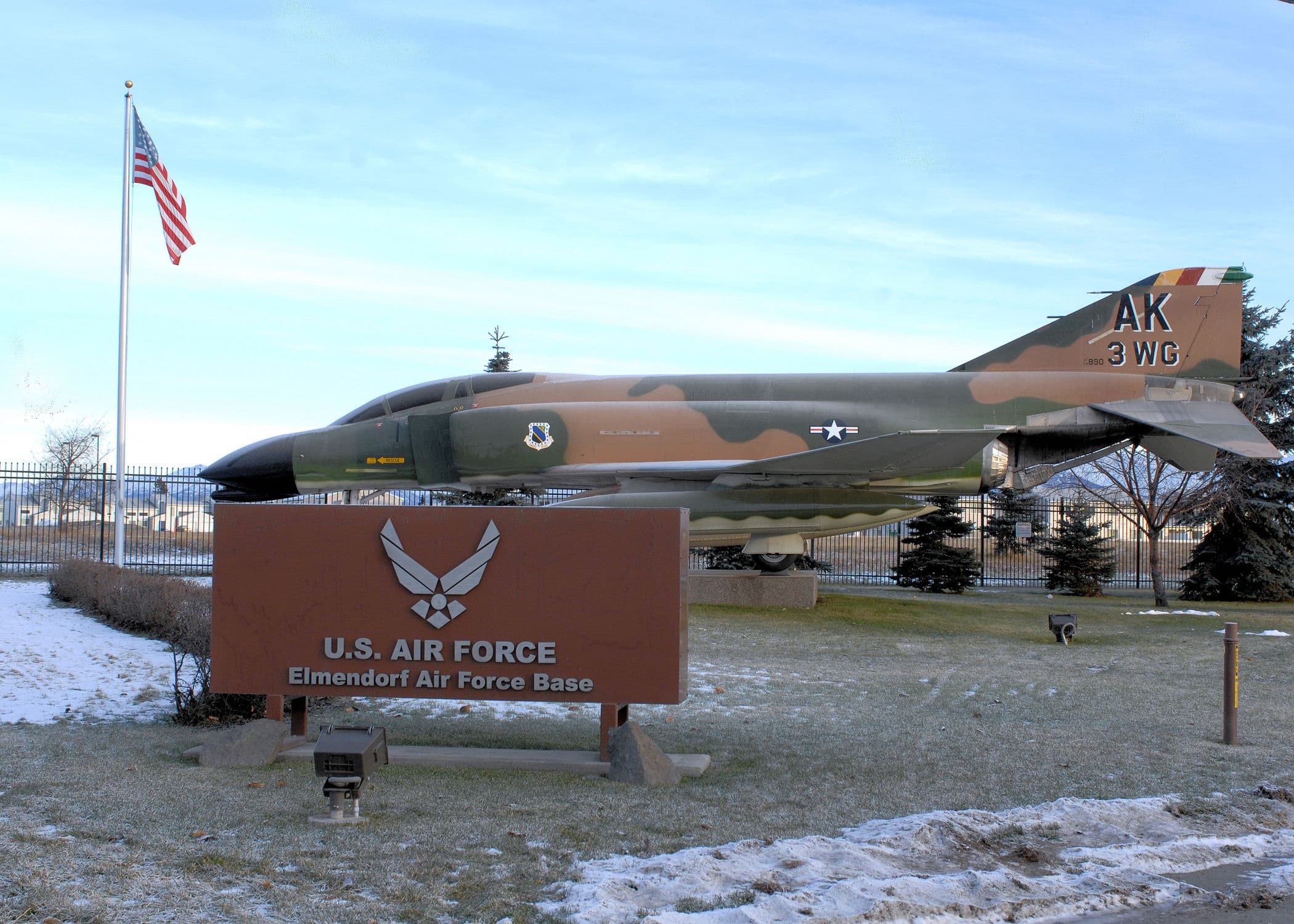 Now Joint Base Elmendorf - Richardson
Now Joint Base Elmendorf - RichardsonNow Joint Base Elmendorf - Richardson.
Anchorage got a large boost in its population with the construction of Elmendorf Air Force Base and Fort Richardson in the 1940s.
BONUS
Fort Richardson was named in honor of Brigadier General Wilds P. Richardson.
Elmendorf Field got its name in honor of Captain Hugh M. Elmendorf.
May 1947
a Movie Palace
for Anchorage
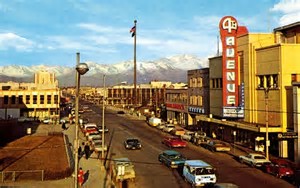
The History of Anchorage Alaska, looks at a jewel
World War II slowed construction of Cap Lathrop's second movie theatre in Anchorage.
The 4th Avenue Theatre opened with its first movie on May 31, 1947.
The Jolson Story was the first movie presented at the 4th Avenue Theatre to happy Anchorage audiences.
Long lines formed outside the theatre with people anxiously waiting to see the movie and the new theatre.
Everyone agreed that Lathrop had outdone himself by creating a beautiful theatre experience for everyone to enjoy.
The 4th Avenue Theatre was the crown jewel of Anchorage movie theatres. Now it's only a pleasant memory.
What are your memories of the 4th Avenue movie theatre in downtown Anchorage, Alaska?
May 1948
A Second Radio Station
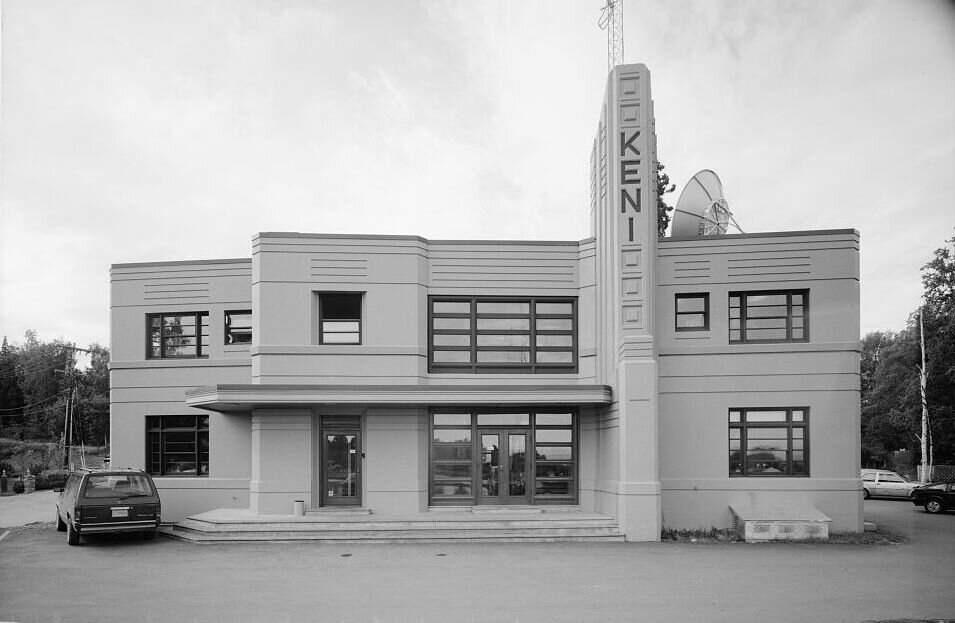
KENI radio signed on in May 1948 to become the second radio station in Anchorage, Alaska.
Owner “Cap” Lathrop first housed the station in the 4th Avenue Theatre building.
KENI radio later moved to the building shown above, which overlooks Westchester Lagoon.
December 1951
Anchorage International
Airport
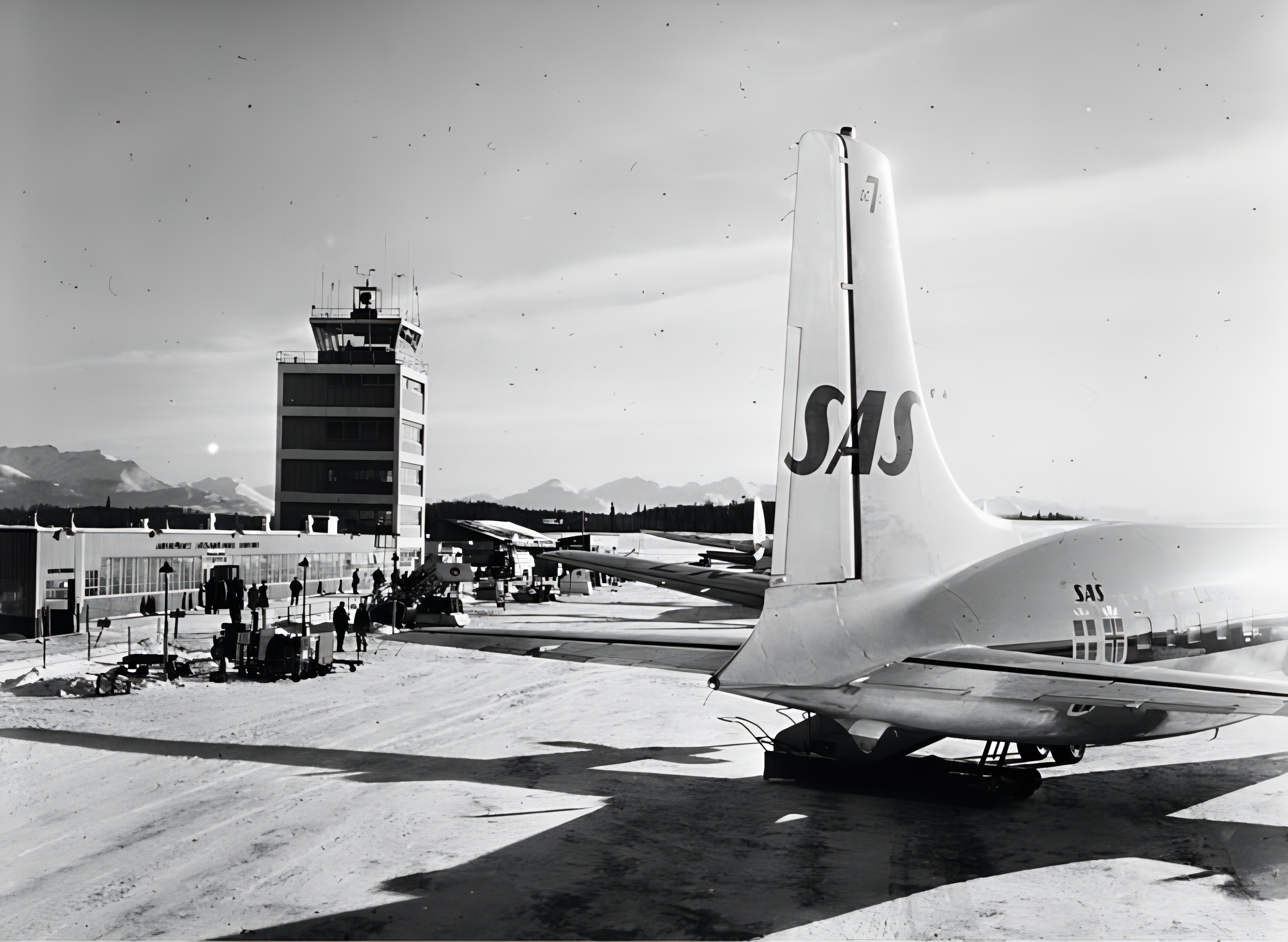
After first opening in 1951, the airport quickly became important to aviation.
Anchorage International Airport became known as the “Air Crossroads of the World”.
It's now Ted Stevens International Airport, named after Alaska's U.S. Senator, Ted Stevens, following his passing.
BONUS
1956
An All American City
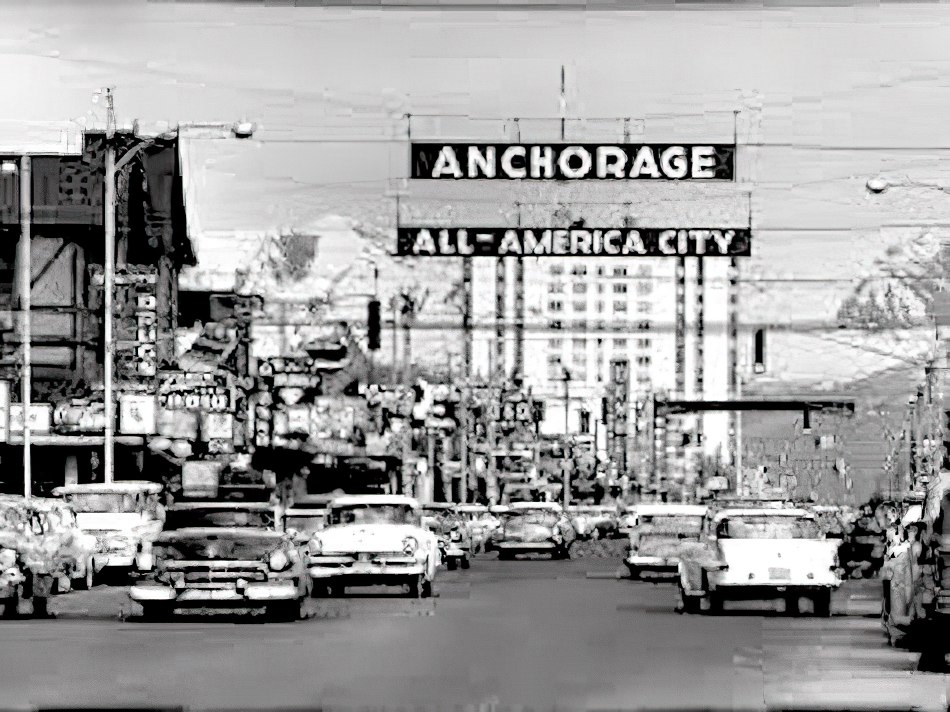
The sign above the street shows civic pride.
In 1956, the National Municipal League and Look Magazine first named Anchorage an “All American City” in 1956.
Since then, Anchorage also received the award in 1965, 1985, and 2002.
1964
Great Alaska Earthquake
 photo by Ed Rosek
photo by Ed RosekAt 5:36 pm, Alaska Standard Time on March 27, 1964, a 9.2 earthquake struck Alaska with incredible force.
The quake shook for 5 minutes and was the second-largest earthquake ever recorded.
Anchorage suffered a great deal of damage during the quake, including the destruction of a large section of the downtown area of 4th Avenue.
BONUS
What was it like during the earthquake?
You can read stories from survivors.
Take a look at Anchorage Alaska Earthquake in 1964 and discover.
Over the Years
Much has changed when it comes to the history of Anchorage Alaska.
From a crude tent city on the muddy banks of Ship Creek in 1914 to the skyline of today's modern Anchorage, with all the services and amenities you'd expect to find anywhere in the United States.
But for those of us who grew up or lived in Anchorage, we all have our special memories of our town.
To discover more about the history of Anchorage, take a look at the following:
BONUS
Memories of the Anchorage you love
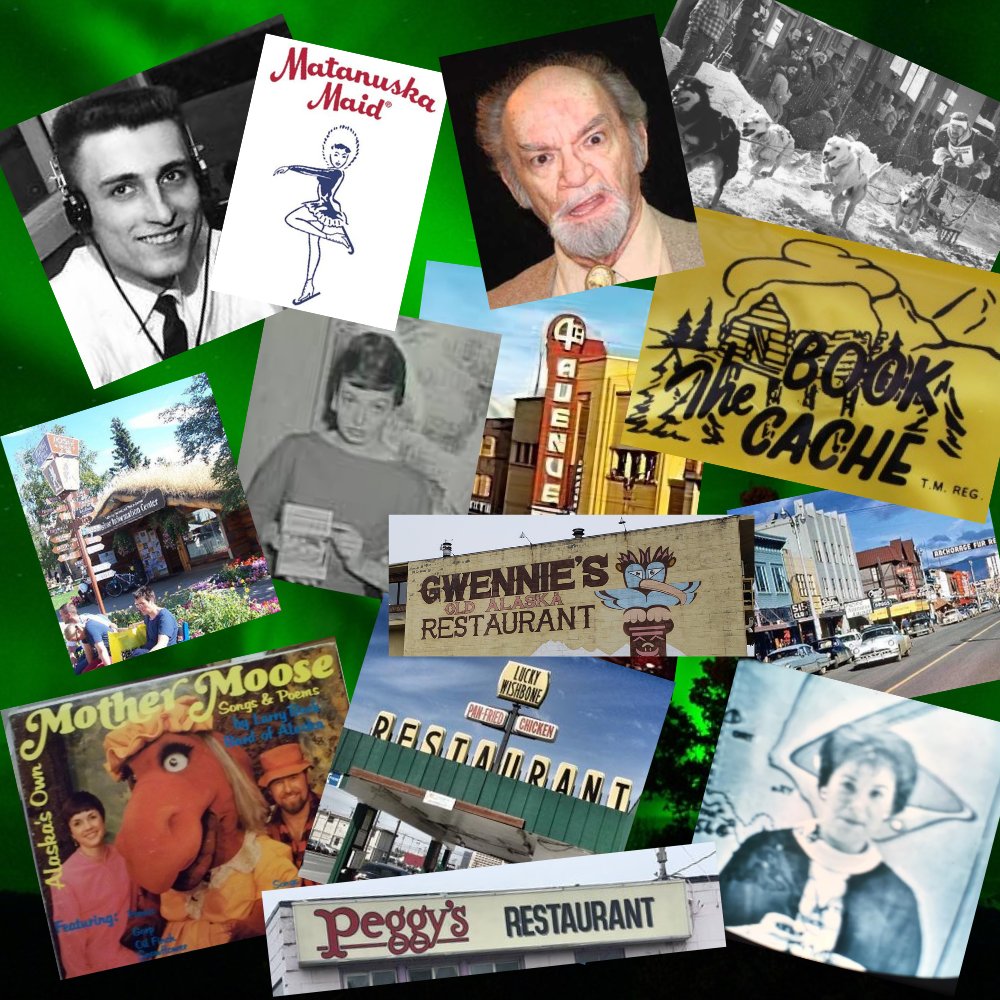
The Anchorage, Alaska Memories Club
It's FREE
*Meet the Pioneers who built Anchorage
*History of Anchorage, Alaska
*sent to you by email twice each month
The Anchorage, Alaska Memories Club
it's FREE

